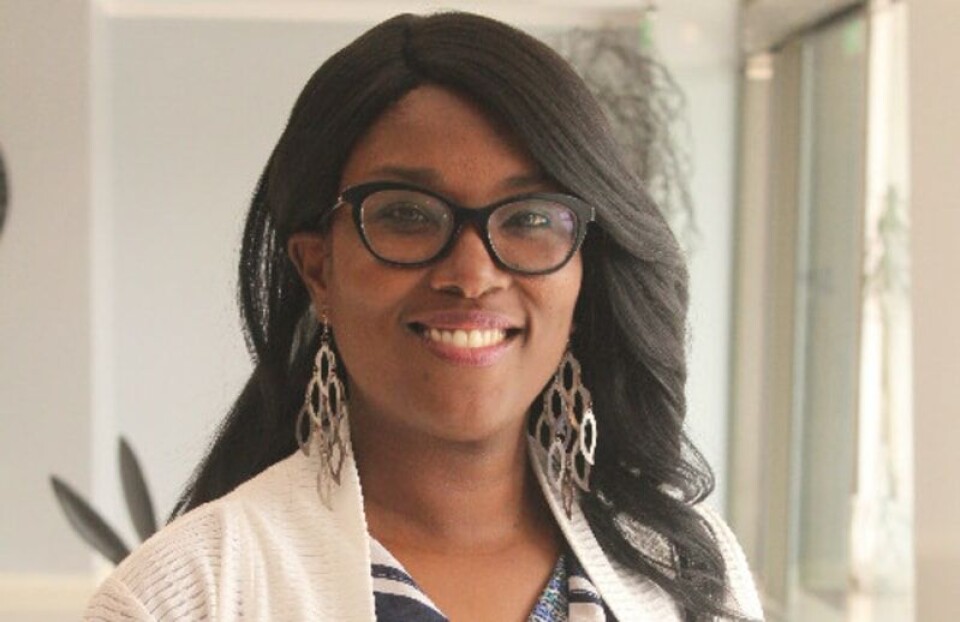Copyright : Re-publication of this article is authorised only in the following circumstances; the writer and Africa Legal are both recognised as the author and the website address www.africa-legal.com and original article link are back linked. Re-publication without both must be preauthorised by contacting editor@africa-legal.com
Ethics Must be Core of Legal Training, Melba Kapesa Wasunna

Kenya, and in turn Africa, is being shaped by lawyers.
And, it is imperative for law schools to recognise this and root training in ensuring good ethics, for it is the thinking of the critical mass which shapes the tone of a country. This is the view of Dr Melba Kapesa Wasunna, Director of the Extractives Baraza, based at the Strathmore University Law School’s Extractives Industry Centre in Nairobi, and doctor of juridicial science. She said that Strathmore recruited students on the principle that it was interested in producing industry-ready lawyers who were also good people.
Strathmore is a private, non-profit university in Kenya. Its law school has been open since 2012 when it took in 75 students when other institutions were enrolling in the hundreds. It has since established itself as a centre of excellence in East Africa with its first graduates achieving the top results in the Kenya School of Law 2016 bar exam. In that exam, which tests law graduates from all universities for admission to the high court, nearly 80% of applicants failed – most of them from public institutions. In February 2018 it was reported by The Standard, a Nairobi newspaper, that continual poor results had prompted High Court judge, Justice John Mativo to call for relook at legal education in Kenya.
A big part of Wasunna’s heart lies in the training of African lawyers as she recognises the potential which is being lost through lack of opportunity and poor training. Strathmore’s law school was opened to counter what was happening in public education.
“In Kenya producing law graduates is a numbers game and standards have declined. That is why at Strathmore we are focussing on recruiting the right people and taking them to the point that, when they emerge from their studies, they are industry ready and are able to contribute meaningfully to their country and the continent.”
Only school leavers with top results are considered for a law degree. Scholarships and bursaries are available so that young people from all walks of life and from all over Kenya stand an equal chance of winning a place.
“It’s not about being politically connected, or wealthy, or if you live in Nairobi. It is about being someone with academic ability but also with the right disposition and attitude to work in law.”
Recruiting students from the rural areas is in line with the Kenyan government’s move to devolve political power to the regions. “It means our graduates can go home and work on projects in their communities. It also takes legal expertise out of the urban areas and spreads it more evenly,” she says.
From the get-go discipline is instilled in Strathmore students. “There are no jeans, or short skirts here,” says Wasunna, “we have a strict dress code so that students learn from when they arrive about the expectations of the world they are about to join.” Each student is given a laptop, levelling the playing field among the student body. “A culture of responsibility and integrity is infused at this moment. Here there are no problems of missing or stolen laptops.”
The course includes a trip to Europe in the students’ third year when they are taken to visit the European Court of Human Rights in Strasbourg, France and the International Court of Justice and the International Criminal Court in The Hague.
“These places must be real to them so that they have context for what they do and an appreciation for what the legal profession means to a nation.”
Travel and site visits continue when the students specialise. If they study oil and gas, for instance, they will visit Texas to see an oil field or Scotland to understand how North Sea oil and gas mining works.
Wasunna is the academic director of the school’s Oil and Gas LLM Programme but also legal advisor to many national and international agencies. Her thinking on corporate accountability in mining in emerging economies shapes policy across the region. She is a sought after speaker, forum chair and writer on issues of good governance and ethics in mining.
She completed her undergraduate studies in law and psychology and then her Bachelor of Laws (LLB) at the University of Cape Town. Her Doctor of Law in human rights and the extractives sector was awarded by Monash University. She was an associate attorney with David Polk and Wardwell LLP in New York City where she was admitted to the Bar. She returned to Kenya in 2012 where she worked in the office of the Chief Justice for one year before joining the Katiba Institute, an NGO that works to promote constitutionalism. In 2014 she joined Strathmore Law School and founded the Strathmore Extractives Industry Centre.
“Through everything, I strive to embed Africa in what I do and how I teach. I want our future lawyers to understand the context of the work they do and the responsibility that comes with it. At Strathmore we want them to do well once they graduate, but more important than anything else, we want them to do good.”
Re-publication of this article is authorised only in the following circumstances; the writer and Africa Legal are both recognised as the author and the website address www.africa-legal.com and original article link is included. A bio can be provided on request.
Re-publication without reference to Africa Legal is not authorised.
